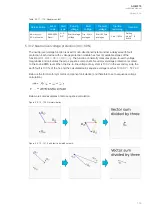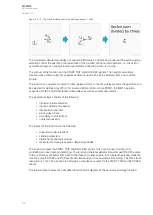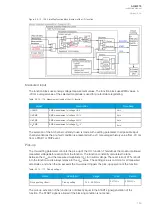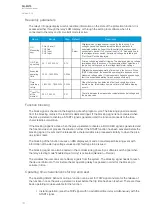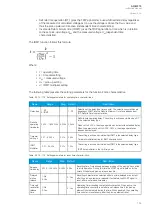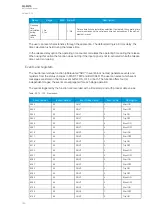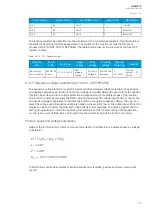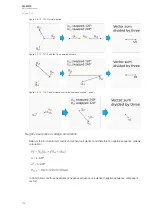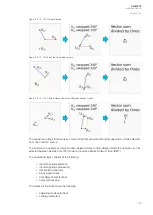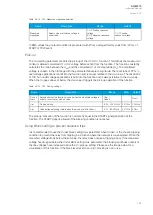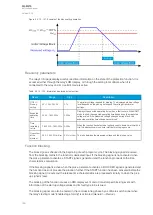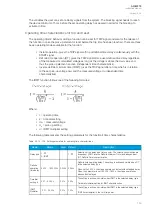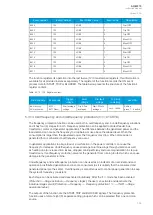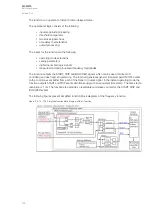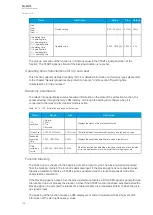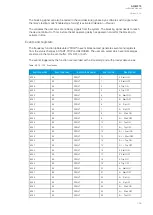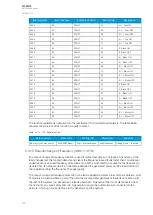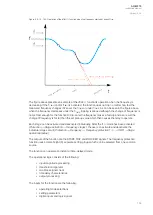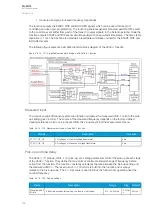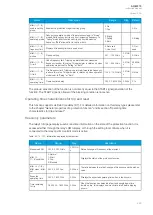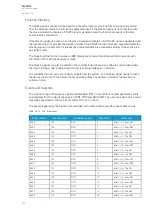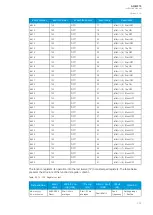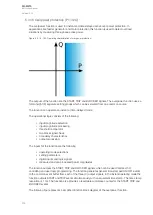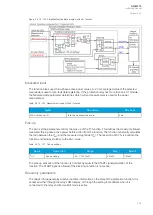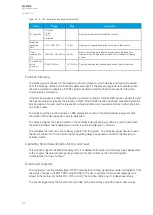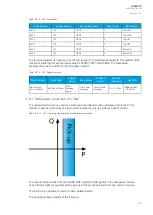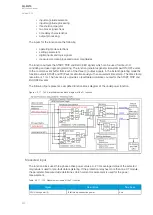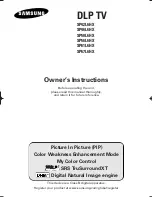
Event number
Event channel
Event block name
Event code
Description
8449
132
VUB3
1
Start OFF
8450
132
VUB3
2
Trip ON
8451
132
VUB3
3
Trip OFF
8452
132
VUB3
4
Block ON
8453
132
VUB3
5
Block OFF
8512
133
VUB4
0
Start ON
8513
133
VUB4
1
Start OFF
8514
133
VUB4
2
Trip ON
8515
133
VUB4
3
Trip OFF
8516
133
VUB4
4
Block ON
8517
133
VUB4
5
Block OFF
The function registers its operation into the last twelve (12) time-stamped registers; this information is
available for all provided instances separately. The register of the function records the ON event
process data for START, TRIP or BLOCKED. The table below presents the structure of the function's
register content.
Table. 5.3.13 - 129. Register content.
Date and time
Event code
Trigger
voltage
Fault
voltage
Pre-fault
voltage
Trip time
remaining
Used SG
dd.mm.yyyy
hh:mm:ss.mss
8320 -
8517 Descr.
Start average
voltage
Trip -20ms
averages
Start -200ms
averages
0 ms...1800s
Setting
group 1...8 active
5.3.14 Overfrequency and underfrequency protection (f>/<; 81O/81U)
The frequency protection function can be used both in overfrequency and in underfrequency situations,
and it has four (4) stages for both. Frequency protection can be applied to protect feeder, bus,
transformer, motor and generator applications. The difference between the generated power and the
load demand can cause the frequency to drop below or rise above the allowed level. When the
consumption is larger than the generated power, the frequency may drop. When more power is
generated than is consumed, overfrequency can occur.
In generator applications too big a load or a malfunction in the power controller can cause the
frequency to decrease. Underfrequency causes damage to turbine wings through vibration as well
as heating due to increased iron losses, dropped cooling efficieny and over-magnetization in step-up
transformers. Overfrequency protection prevents the generator from running too fast which can cause
damage to the generator turbine.
Underfrequency and overfrequency protection can be used as an indicator of an accidental island
operation in distributed generation and in some consumers (as it is unlikely that the consumed and
generated power are the same). Overfrequency is also often used to control power generation to keep
the system's frequency consistent.
Each stage can be activated and deactivated individually. After the f>/< mode has been activated
(
Protection
→
Stage activation
→
Frequency stages), the user can activate and deactivate the
individual stages at will (
Protection
→
Frequency
→
Frequency protection f >/<
→
INFO
→
Stage
operational setup).
The outputs of the function are the START, TRIP and BLOCKED signals. The frequency protection
function uses a total of eight (8) separate setting groups which can be selected from one common
source.
A
AQ
Q-M215
-M215
Instruction manual
Version: 2.04
192

